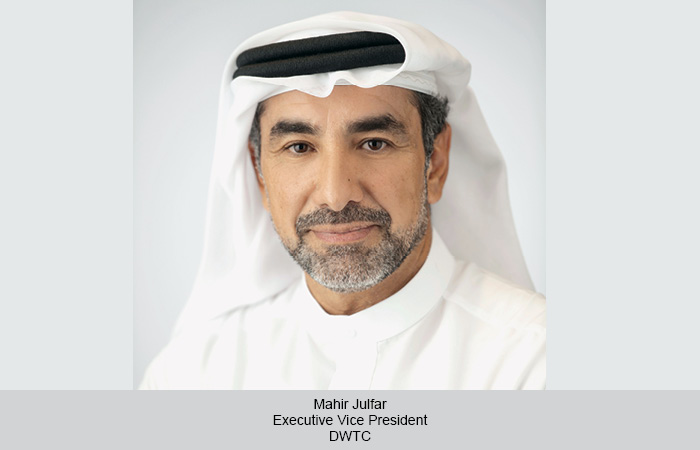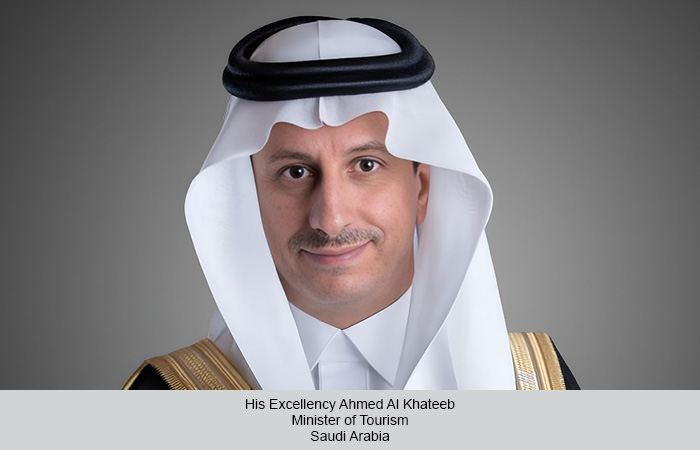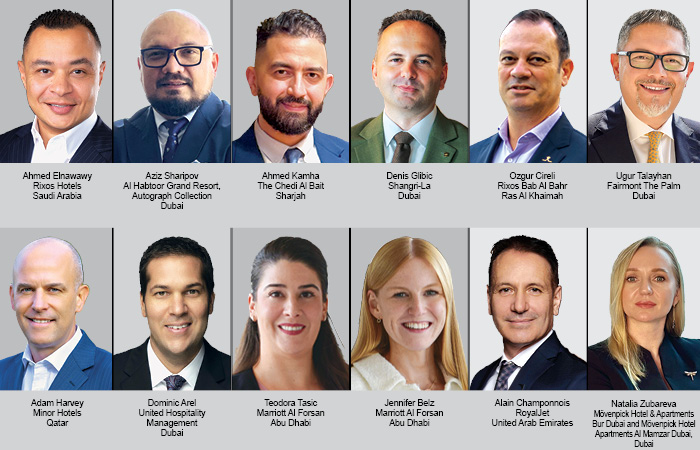Over the past years, the hospitality industry has been involved in ensuring that the necessary infrastructure has been created to accommodate sustainability. Today, the industry has prioritized sustainability and implemented various measures in a bid to reduce the carbon footprint. TRAVTALK ask the hospitality experts for their views on the current situation.
Alfio Bernardini , General Manager, Grand Plaza Mövenpick Media City
The industry is progressing towards sustainable infra with many hotels implementing energy-efficient systems, utilizing renewable energy sources, and implementing waste reduction measures. As hoteliers, we must continue to prioritize sustainability in all areas of operation to make an impact. Accor has been at the forefront in eliminating single-use plastic in their hotels and resorts and has contributed towards sustainability. Our hotels look to implementing initiatives such as reducing water and energy consumption, using eco-friendly materials, implementing recycling programs, and promoting sustainability practices.
Bianca Nastase, Director of Operations & Commercials – Sofitel Dubai Jumeirah Beach
At Sofitel Dubai Jumeirah Beach, we are at the forefront of sustainable hospitality. Our eco-friendly practices reflect our commitment to preserving the environment and align with Accor and DTCM standards. We have eliminated single-use plastic, provided reusable amenities, and have given paper-based key cards to our guests, a eco-conscious experience. While achieving zero-carbon status by 2050 is doable, it requires substantial investment to convert existing infrastructure. We are committed to providing luxurious comfort, while safeguarding the well-being of our planet.
Nuran Kilani, Director Sales and Marketing The Tower Plaza Hotel
Hospitality firms are increasingly keen to jump onto the sustainability bandwagon. Too often they get lost in the complexity of the subject and limit their engagement to unimaginative solutions such as towel reuse in bathrooms. Much larger challenges loom in the physical infrastructure of the hotel itself. While making fundamental decisions about sustainability in construction, the situation of a new construction vs the renovation of an existing structure pose unique challenges and opportunities. When renovating an existing property, the objective is to turn “old into new”.
Binu Varghese, General Manager – Ramada Hotel & Suites by Wyndham JBR
The hospitality industry has made strides towards sustainability but needs to align its infrastructure with sustainability principles. Initiatives include energy-efficient practices, water conservation, waste reduction, sustainable food practices, green building certifications, and community engagement. Achieving zero carbon status by 2050 is a challenging goal that requires a collective effort from all stakeholders, significant investment, and government policies. However, it is necessary to mitigate the impacts of climate change and create a sustainable future.
Panos Panagis, General Manager & District Director Oman, Radisson Hotel Group
At Radisson Hotel Group, we care for the future of our planet so does the rest of the industry. This is reflected in the industry’s goal to reach net zero carbon status by 2050. I do believe we are ready to make sustainability the center of all our endeavours as an organization and industry. The sustainable hospitality alliance encourages hotels to steer towards a sustainable future by bringing changes in all aspects, from the supply chain, to team commitment and energy efficiency. We work with our partners to support the locals and we encourage our guests to adopt a sustainable lifestyle.
Petr Dubsky, General Manager, The Diplomat Radisson Blu Hotel, Residence & Spa, Kingdom of Bahrain
In the sector, achieving net zero and embracing sustainability, renewable energy, green building design, and green mobility is our aim. However, there is still much to learn. Proactive approaches and willingness to change are crucial. Tourism relies heavily on natural and cultural resources for growth and development. Hospitality leaders can further adapt their sustainability plans to current trends like reducing plastic waste and using environmentally friendly cleaning products. But a holistic approach must be taken from the outset, considering materials used and hotel structure for a more sustainable future.
David Allan, Cluster General Manager, Radisson Hotel Group
We are proud to be part of the industry’s journey towards sustainability. Our three hotels are implementing infra to support sustainability as part of Radisson Hotel Group’s Responsible Business culture. We have taken initiatives, such as reducing single-use plastics, presenting food in bulk quantities, and aiming to produce our own mineral water. We have a zero waste policy for food and support local initiatives to minimize waste. With our unwavering commitment, I have no doubt that the industry will achieve sustainability goals well before 2050, making hospitality a global leader in this endeavour.
Mohamad Yassine, General Manager, Radisson Blu HotelBeirut – Verdun
I am sure 10 years from now, the hospitality industry will be ready with infrastructure that support sustainability, from constructing solar panels, to renting bicycles instead of cars, I can see our industry will play a role in adopting to sustainable hospitality. By asking the employees to close the light after finalizing their shift, or making sure no food is wasted, or ensuring limited use of plastic through our carbon neutral meetings, we will all aid in adopting sustainability in hospitality. If hotels continue using the resources, while being sure that tourists still visit their destinations due to their preserved eco-attractions, then the industry will achieve zero carbon status by 2050.
Albert Meow, Commercial Director, Habtoor Grand Resort, Autograph Collection
Beverage, waste reduction and recycling, and certification and reporting: these initiatives are helping the industry reduce its environmental impact, improve its social and economic sustainability, and meet the expectations of guests who are looking for sustainable travel options. As the industry continues to evolve, we can expect to see innovative approaches to sustainability and environmental protection. Achieving a zero-carbon status by 2050 will be a challenge for the industry, but it is not impossible. It will require efforts from the industry and the stakeholders. New technologies are replacing the old system. It will require a change in the way the industry operates.
Aldert van Zyl, General Manager, Radisson Blu Hotel, Riyadh Convention & Exhibition Center
The hospitality industry has made rapid strides in sustainable infrastructure, but yet more work remains to be done. At Radisson Blu Hotel, Riyadh Convention & Exhibition Center, we are committed to sustainability by taking up eco-friendly initiatives such as reducing water and energy consumption, waste reduction, and eco-friendly amenities, among others. Achieving zero carbon status by 2050 is an ambitious measure, but with collective effort by the hoteliers as well as the guests, the hospitality industry can steadily make progress. We believe that it is our responsibility to contribute to a greener future and inspire others to do the same.
Tiana Amann, Head ESG, Kerten Hospitality
As we strive to connect hospitality offerings to the local communities, we must integrate locality into our strategies to meet Saudi Vision 2030 Sustainability Goals. Collaboration is key to advancing these measures, as we have learned through UBBU’s butterfly effect. Actions in the name of sustainability can have an impact on the economy, stakeholders, and local communities. Our approach is flexible to all the destinations we operate in. We prioritize working with local suppliers and artists to integrate and preserve the local culture and traditions. KSA is in a position where we in the industry could grow the local economy, entrepreneurs, and suppliers.
Shady Dawad, General Manager, Copthorne Hotel Dubai
In recent years, sustainability has become ingrained in the industry’s DNA. Not only have we focused on measures such as water and energy conservation, but the sector is increasingly transitioning toward Sustainable Tourism. Hotels have implemented initiatives such as developing their own gardens and farms, sourcing out local produce instead of imports, minimizing food waste, and shifting to re-usable bottles that the industry partakes to implement sustainability. With support from the Dubai Government, and with the industry’s proactive approach to sustainability, I believe that hospitality will be able to achieve the zero carbon status by 2050.
Inputs by Shehara Rizly
 TravTalk Middle East Online Magazine
TravTalk Middle East Online Magazine





